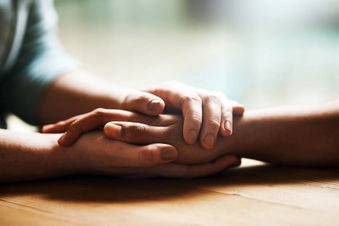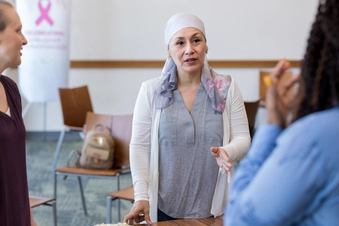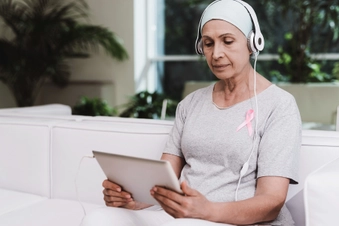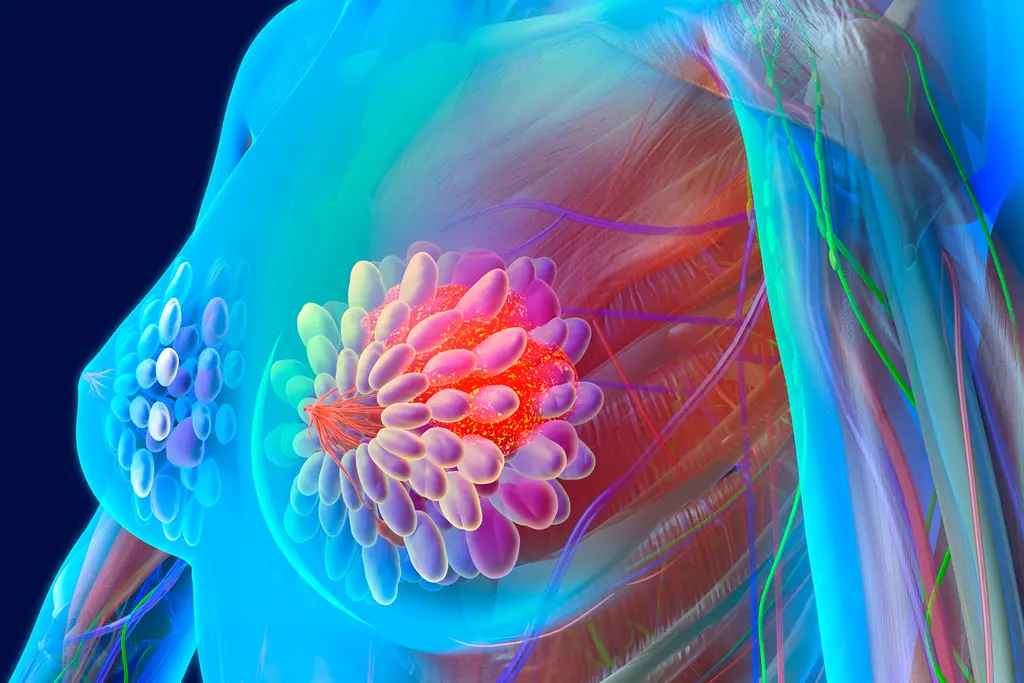Honoring Your Emotions with Early HER2-Positive Breast Cancer

Denial
A diagnosis of HER2-positive breast cancer. For many it’s surprising, devastating news that brings up big emotions. The best way to honor those emotions is to feel them, whatever they are, whenever they come up. This includes denial, which says “this isn’t happening” when you feel overwhelmed. Denial can help you process info in small, manageable doses until you can manage it, then gradually disappear.

Anger
It’s normal to feel angry at times as you deal with HER2-positive breast cancer, especially after diagnosis, during treatment, or whenever cancer affects your daily life. There’s usually another emotion under this feeling, like fear, frustration, or helplessness. Even if feels scary, express your anger in healthy ways: Vent to a friend or therapist, or release it through exercise. If you don’t let anger out, it can turn into depression.

Fear
It’s normal for fear, worry, and anxiety to take the lead after a breast cancer diagnosis. Don’t fight these feelings, but don’t let them steer the ship either. Learn everything you can about HER2-positive breast cancer and what it takes to be proactive about your treatment from trusted sources. Then talk back to those fears with facts.

Sadness and Depression
Sadness and depression are natural responses to loss and a big part of the grief that may come in waves throughout your experience with cancer. Common symptoms of sadness are low energy and less interest in food, family, and friends. Sadness that doesn’t pass can become depression: 1 in 4 people with cancer have it. But it’s treatable -- ask your doctor or therapist for help.

Acceptance
When you give yourself room to feel whatever emotions come up, you may eventually feel acceptance. It doesn’t mean you like having breast cancer, or that all your fears or sadness have passed. But you can wrap your mind around the reality of what’s happening, adjust to it and move forward.

Hope
Hope often follows acceptance. Though anger and sadness may come and go, you’re more focused on the present and what’s possible. Keep hope alive by making plans and doing things that bring you joy and inspiration. Though more research is needed, many studies on women with cancer have linked a feeling of hope that comes with an easing of depressive feelings with longer survival rates.

Vent It Out
Your mental health has a huge effect on your physical health. Emotions are such a big part of cancer care that the medical community calls them the sixth vital sign. Consider sharing your feelings in safe spaces like support groups, therapy, or with trusted friends or family. Sometimes, when you share strong feelings, it’s a little easier to let them go.

Ask for Support
Used to doing it all, and doing it well? Many women are. Some days it’s not possible when you have breast cancer, and that’s OK. This is a great time to ask all the people who’ve told you to reach out if you need anything. Be as specific as you can. For example, ask a friend to pick up your grocery order, take you to an appointment, or bring over a healthy meal.

Write It Down
Whether you fill pages of a journal or jot down a few notes, writing can be a healing way to express anything you feel. It’s also a helpful method to track your emotions. In some cases, you may read back and notice how far you’ve come. In others, you might realize you’ve been struggling with the same issue for awhile and need to reach out for help.

Move As Much As You Can
Sounds too simple to be true, but it is: Exercise can lower your levels of anxiety and depression. No marathon necessary -- just take a walk or have a solo dance party in your kitchen. Yes, there will be days when you don’t feel like exercising, or don’t have time. That’s OK. Try to work it in when you can.

Practice Gratitude
Look for the good in every situation as much as you can. A grateful outlook frees up energy you need to focus on your health and wellness. It brings you joy by reminding you how special even the little things are that we often take for granted. But if you can’t get there some days, don’t beat yourself up: try again tomorrow.

Use Tools to Relax
When you have breast cancer, it can be tough to calm your body and your mind. Racing thoughts and worry keep stress levels high. Break those cycles with meditation, guided imagery, or soothing sounds. Search out a podcast, app, soundtrack, or video that feels like a good fit, even for a few minutes. Not your style? Take a hot bath. Have some tea and read a book. Spend time with an animal you love.
Show Sources
IMAGES PROVIDED BY:
1) Science Photo Library / Getty Images
2) SDI Productions / Getty Images
3) valentinrussanov / Getty Images
4) d3sign/ Moment RF/ Getty Images
5) PeopleImages / Getty Images
6) FatCamera / Getty Images
7) SDI Productions / Getty Images
8) mapodile / Getty Images
9) nortonrsx / Getty Images
10) JGI / Tom Grill / Getty Images
11) AaronAmat / Getty Images
12) vadimguzhva / Getty Images
SOURCES:
National Cancer Institute: “Emotions and Cancer.”
Living Beyond Breast Cancer: “Emotional Stages of a Breast Cancer Diagnosis.”
American Cancer Society: “Depression.”
American Psychological Association: “Breast Cancer: How Your Mind Can Help Your Body.”
Primary Care Companion to The Journal of Clinical Psychiatry: “Exercise for Mental Health.”
Healthcare: “Emotions and Emotion Regulation in Breast Cancer Survivorship.”
Cancer Care: “Breast Cancer: Coping With Your Changing Feelings.”
Georgetown University School of Nursing: “Managing Mental Health After A Cancer Diagnosis.”
